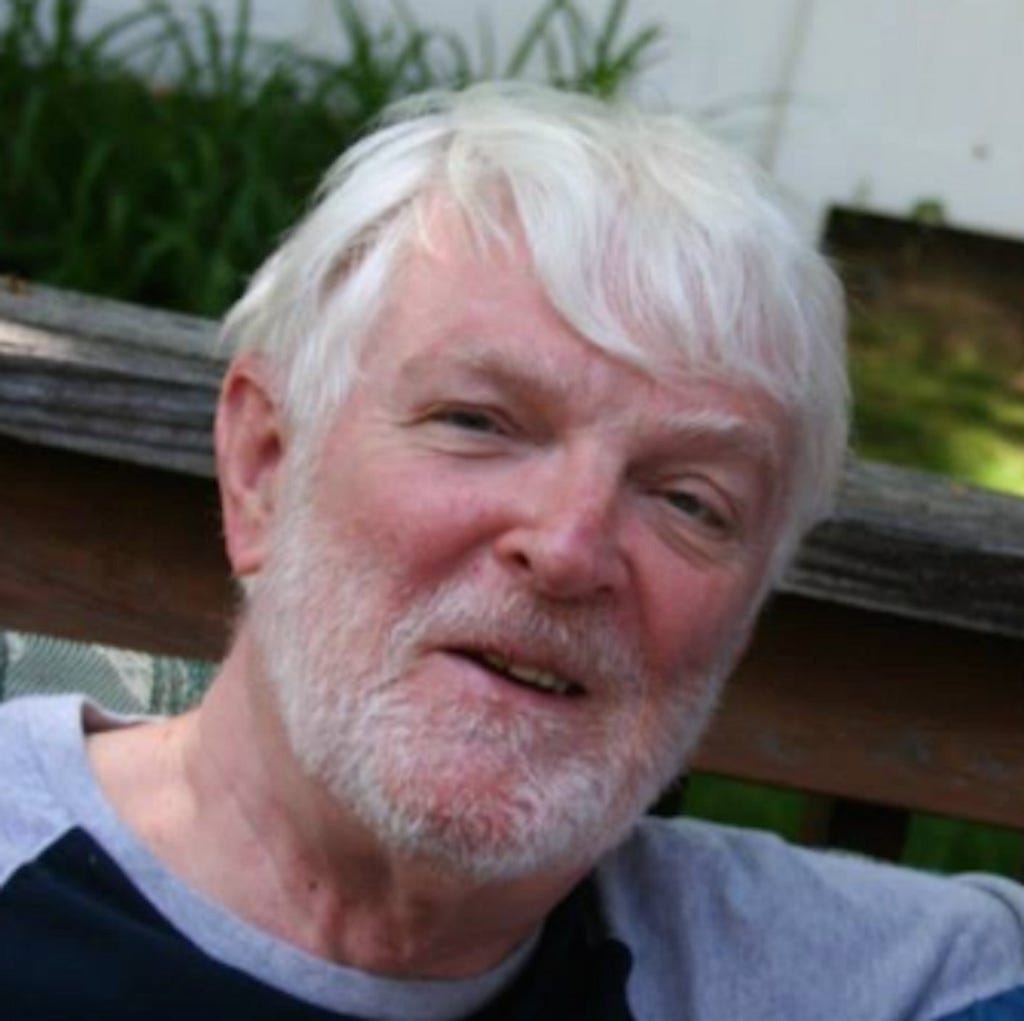Planning: Ai can be used here to help develop characters, plots, outlining, brainstorming, researching and to overcome writer’s block.
Artificial Intelligence is transforming industries at a breakneck pace, and the entrepreneurs driving this innovation are at the forefront of this revolution. From groundbreaking applications to ethical considerations, these visionaries are shaping the future of AI. What does it take to innovate in such a rapidly evolving field, and how are these entrepreneurs using AI to solve real-world problems? As a part of this series, I had the pleasure of interviewing Hank Quense.
Hank Quense is an author and a lecturer. He has written a dozen novels and more than a dozen nonfiction books. His nonfiction books deal with fiction writing, self-publishing and book marketing
Thank you so much for joining us in this interview series. Before we dive in, our readers would love to learn a bit more about you. Can you tell us a bit about your childhood backstory and how you grew up?
I was born and grew up in Jersey City. My parents owned a small shop and I worked there while going to high school. I have a Mechanical Engineering degree from Newark College of Engineering. I took an early retirement from a major corporation to write stories,.
Can you share the most interesting story that happened to you since you began your career?
I wrote two short stories spoofing Shakespeare. They were Romeo & Juliet and Merchant of Venice. I tried writing two more stories: one about Hamlet and the other about Othello. Nothing worked. I simply couldn’t write the stories. One day I decided to lump the two together to see if that would trigger a story. To my amazement, thirty seconds later, I had the complete story mapped out in my head. I knew the characters, I knew the plot, I knew the endings. And it wasn’t a short story. I was a novel. It was later published as Falstaff’s Big Gamble.
None of us are able to achieve success without some help along the way. Is there a particular person who you are grateful towards who helped get you to where you are? Can you share a story about that?
A long time ago, when I was first writing stories, I submitted to a magazine and a unnamed, kindly editor gave me an in-depth critique that opened my ideas to a half-dozen things I was doing wrong.
Can you please give us your favorite “Life Lesson Quote”? Can you share how that was relevant to you in your life?
“Never stop learning” This is my life lesson and I’ve used all during my long life. It’s what got me started with AI.
You are a successful business leader. Which three character traits do you think were most instrumental to your success? Can you please share a story or example for each?
In engineering school, I studied a lot of technical courses like thermodynamics, fluid dynamics, heat transfer and so on. I never used that knowledge afterward. What I really learned in college was how to think logically and how to solve problems. The third trait was a desire to constantly learn new stuff.
Ok super. Let’s now shift to the main part of our discussion. Share the story of what inspired you to start working with AI. Was there a particular problem or opportunity that motivated you?
Early in 2024, I was between projects and bored. I needed something new to do, something I hadn’t done in the past. I decided to look into AI to see what all the fuss was about. In truth, I was very unimpressed with AI at first. But then I read an article about how to write AI queries and I realized I was asking generic queries and getting generic responses. That’s when AI became interesting. One day, I was fooling around and I wrote a query about character design. The AI response shocked me because it was so complete and so accurate. After some more queries about plots, book blurbs and book marketing, I became convinced that AI was a tool that writers and authors should be using so I wrote a book on that topic.
Describe a moment when AI achieved something you once thought impossible. What was the breakthrough, and how did it impact your approach going forward?
In an AI test I ran, I asked it to write a press release about a book I had just completed working on. Now, I now how to write a press release having written a number of number of them. The AI response was much better then what I would have written and it made several points I never would have thought of. That was when I started taking AI seriously.
Talk about about a challenge you faced when working with AI. How did you overcome it, and what was the outcome?
I talked about AI to several other authors I know and my thoughts were greeted with fear. These authors knew nothing about AI except for a few doom-and gloom-headlines about AI. I was writing the book and realized I need a way to convince these writers that they had the wrong idea about using AI as a writing tool. While still writing the book, I created three slide presentations explaining AI and showing how it could be used. The three slide presentation were on writing, self-publishing and book marketing. Right now, I’m turning the lectures into videos.
The true value in using AI is that it can relieve the writer or author of tedious, boring chores and that leaves more time to be creative. While true with writing, it is especially true with self-publishing and book marketing chores.
Can you share an example of how your work with AI has had a meaningful impact (on others, on business results, etc)? What was the situation, and what difference did it make?
My AI lectures (given on Zoom) convinced many of my peers that AI was in fact a useful tool. Some are using it but others are inclined to ignore it and maintain the status quo. I’m hoping the book can convince more writers and authors to adapt AI tools.

Based on your experience and success, can you please share “Five Things You Need To Know To Help Shape The Future of AI”?
My experience with AI is limited to applications associated with creating a book. That involves five separate and distinct phases: planning, writing, publishing, marketing and business. The most important thing to know about using Ai is to learn how to frame a query to get useful responses form the AI program. I’ll illustrate how AI can be used in each phase of creating a book.
- Planning: Ai can be used here to help develop characters, plots, outlining, brainstorming, researching and to overcome writer’s block.
- Writing: Here Ai is useful in editing, titles, rewriting and exploring alternative solutions when stuck.
- Publishing: AI can generate first drafts on a book blurb and description, lists of keywords and book categories.
- Marketing: Ai can really shine in this phase, specifically in targeting, generating lists of hashtags, developing a marketing plan and organizing a book launch plan.
- Business: Ai is useful in figuring out a break even point or starting a publishing company.
When you think about the future of AI, what excites you the most, and how do you see your work contributing to that future?
I’m excited about building a few AI agents that can help me further my career by coming up with new ideas and/or projects. Once they are successfully built and tested, I can advise writers and authors how to develop their own personal AI agents.
What advice would you give to other entrepreneurs who want to innovate in AI? Can you share a story from your experience that illustrates your advice?
Before someone can use Ai to innovate, they have to learn how to write appropriate queries. The more complicated the project is the more involved the queries must be. They don’t refer to it as query engineering for nothing.
I discussed previously that my initial queries were generic and how that led me to temporarily think AI wasn’t very impressive. In short, learn how to write queries.
Is there a person in the world, or in the US with whom you would like to have a private breakfast or lunch, and why? He or she might just see this, especially if we tag them. 🙂
Elizabeth Gilbert to discuss creativity
How can our readers further follow your work online?
Here is a (lengthy) list of sites:
Fiction: https://padlet.com/hanque/fiction-fkoyyhe0zbprq8u2
Non-fiction: https://padlet.com/hanque/non-fiction-resources-u31nc6aa8wpz4hcw
Freebies: https://padlet.com/hanque/free-books-gpdxh7hm98pyj1x9
Website: https://hankquense.com
Newsletter sign up: https://hankquense.substack.com/subscribe
Twitter: https://x.com/hanque99
YouTube: https://www.youtube.com/@CreatingANovel-n9i
Facebook: https://www.facebook.com/hank.quense
Instagram: https://www.instagram.com/hquense/
Thank you so much for joining us. This was very inspirational, and we wish you continued success in your important work.
Author Hank Quense On Pushing the Boundaries of AI was originally published in Authority Magazine on Medium, where people are continuing the conversation by highlighting and responding to this story.


